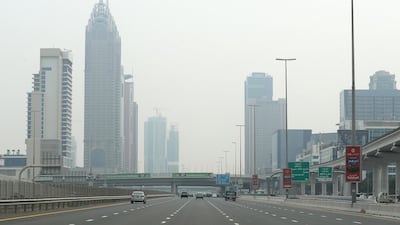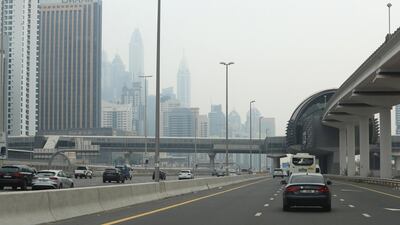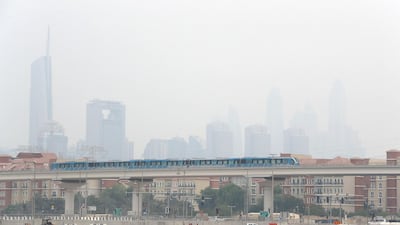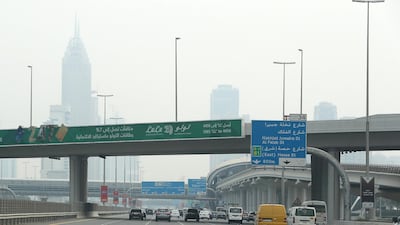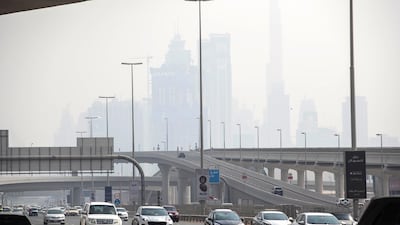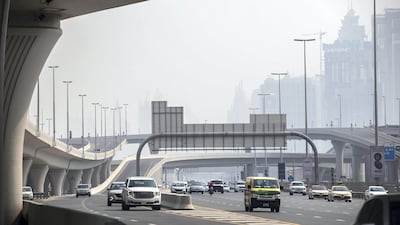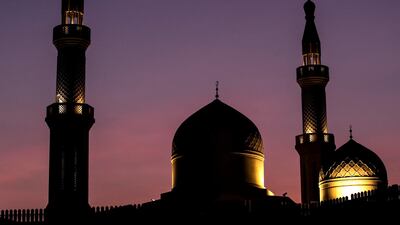Suhail has appeared, bringing relief to the UAE that the scorching summer days are coming to a close.
The emergence of the star every year in late August meant one thing to ancient mariners and farmers: winter is coming.
This year, Suhail returned to the skies above the UAE in the early hours of August 24.
With more people staying in the country this year because of Covid-19 and temperatures near 50°C some days, the news is a welcome relief.
According to the ancient drour calender of the Gulf, the emergence of Suhail heralds the end of the traditional pearl diving season and the beginning of clement weather.
Known as Canopus in the West, Suhail is the second-brightest start in the sky after Sirius and once guided pearl divers and Hajj pilgrims as they navigated across sea and sand. Today, it is used in space navigation.
The 365-day drour calendar measures the year in 10-day cycles – these micro seasons are known in Arabic as dir. It has four seasons, with 100 days allocated to autumn, winter and summer, followed by a 60-day season of intense heat. Five "stolen days" are added for turbulent weather.
But don’t expect to turn off the air conditioning just yet. According to the drour, good weather does not begin until 70 to 80 days after Suhail rises. Traditionally, this is when palm pollination and camel grazing can begin.
If it still feels oppressively hot in the coming weeks, don't blame the drour. The centuries-old calendar is possibly off kilter. Elders say climate change has dimmed its accuracy and Suhail may no longer the infallible guiding light it once was.
In the meantime, this weekend’s weather looks promising. There will be cloudy skies on the east coast and a chance of rain, with temperatures falling as low as a balmy 30°C.
Day trippers can also flee the heat by heading to Jebel Jais in Ras Al Khaimah, where temperatures dropped to 19°C on Wednesday morning, and temperatures are predicted to dip as low as 20°C this weekend, with a high of 36°C. In Dubai and Abu Dhabi, temperatures will range from 33°C to 40°C this weekend.
Emergency phone numbers in the UAE
Estijaba – 8001717 – number to call to request coronavirus testing
Ministry of Health and Prevention – 80011111
Dubai Health Authority – 800342 – The number to book a free video or voice consultation with a doctor or connect to a local health centre
Emirates airline – 600555555
Etihad Airways – 600555666
Ambulance – 998
Knowledge and Human Development Authority – 8005432 ext. 4 for Covid-19 queries
SPEC%20SHEET%3A%20APPLE%20M3%20MACBOOK%20AIR%20(13%22)
%3Cp%3E%3Cstrong%3EProcessor%3A%3C%2Fstrong%3E%20Apple%20M3%2C%208-core%20CPU%2C%20up%20to%2010-core%20CPU%2C%2016-core%20Neural%20Engine%3C%2Fp%3E%0A%3Cp%3E%3Cstrong%3EDisplay%3A%3C%2Fstrong%3E%2013.6-inch%20Liquid%20Retina%2C%202560%20x%201664%2C%20224ppi%2C%20500%20nits%2C%20True%20Tone%2C%20wide%20colour%3C%2Fp%3E%0A%3Cp%3E%3Cstrong%3EMemory%3A%3C%2Fstrong%3E%208%2F16%2F24GB%3C%2Fp%3E%0A%3Cp%3E%3Cstrong%3EStorage%3A%3C%2Fstrong%3E%20256%2F512GB%20%2F%201%2F2TB%3C%2Fp%3E%0A%3Cp%3E%3Cstrong%3EI%2FO%3A%3C%2Fstrong%3E%20Thunderbolt%203%2FUSB-4%20(2)%2C%203.5mm%20audio%2C%20Touch%20ID%3C%2Fp%3E%0A%3Cp%3E%3Cstrong%3EConnectivity%3A%3C%2Fstrong%3E%20Wi-Fi%206E%2C%20Bluetooth%205.3%3C%2Fp%3E%0A%3Cp%3E%3Cstrong%3EBattery%3A%3C%2Fstrong%3E%2052.6Wh%20lithium-polymer%2C%20up%20to%2018%20hours%2C%20MagSafe%20charging%3C%2Fp%3E%0A%3Cp%3E%3Cstrong%3ECamera%3A%3C%2Fstrong%3E%201080p%20FaceTime%20HD%3C%2Fp%3E%0A%3Cp%3E%3Cstrong%3EVideo%3A%3C%2Fstrong%3E%20Support%20for%20Apple%20ProRes%2C%20HDR%20with%20Dolby%20Vision%2C%20HDR10%3C%2Fp%3E%0A%3Cp%3E%3Cstrong%3EAudio%3A%3C%2Fstrong%3E%204-speaker%20system%2C%20wide%20stereo%2C%20support%20for%20Dolby%20Atmos%2C%20Spatial%20Audio%20and%20dynamic%20head%20tracking%20(with%20AirPods)%3C%2Fp%3E%0A%3Cp%3E%3Cstrong%3EColours%3A%3C%2Fstrong%3E%20Midnight%2C%20silver%2C%20space%20grey%2C%20starlight%3C%2Fp%3E%0A%3Cp%3E%3Cstrong%3EIn%20the%20box%3A%3C%2Fstrong%3E%20MacBook%20Air%2C%2030W%2F35W%20dual-port%2F70w%20power%20adapter%2C%20USB-C-to-MagSafe%20cable%2C%202%20Apple%20stickers%3C%2Fp%3E%0A%3Cp%3E%3Cstrong%3EPrice%3A%3C%2Fstrong%3E%20From%20Dh4%2C599%3C%2Fp%3E%0A
Aayan%E2%80%99s%20records
%3Cp%3E%3Cstrong%3EYoungest%20UAE%20men%E2%80%99s%20cricketer%3C%2Fstrong%3E%3Cbr%3EWhen%20he%20debuted%20against%20Bangladesh%20aged%2016%20years%20and%20314%20days%2C%20he%20became%20the%20youngest%20ever%20to%20play%20for%20the%20men%E2%80%99s%20senior%20team.%20He%20broke%20the%20record%20set%20by%20his%20World%20Cup%20squad-mate%2C%20Alishan%20Sharafu%2C%20of%2017%20years%20and%2044%20days.%3Cbr%3E%20%3Cbr%3E%3Cstrong%3EYoungest%20wicket-taker%3C%2Fstrong%3E%3Cbr%3EAfter%20taking%20the%20wicket%20of%20Bangladesh%E2%80%99s%20Litton%20Das%20on%20debut%20in%20Dubai%2C%20Aayan%20became%20the%20youngest%20male%20cricketer%20to%20take%20a%20wicket%20against%20a%20Full%20Member%20nation%20in%20a%20T20%20international.%3Cbr%3E%20%3Cbr%3E%3Cstrong%3EYoungest%20in%20T20%20World%20Cup%20history%3F%3C%2Fstrong%3E%3Cbr%3EAayan%20does%20not%20turn%2017%20until%20November%2015%20%E2%80%93%20which%20is%20two%20days%20after%20the%20T20%20World%20Cup%20final%20at%20the%20MCG.%20If%20he%20does%20play%20in%20the%20competition%2C%20he%20will%20be%20its%20youngest%20ever%20player.%20Pakistan%E2%80%99s%20Mohammed%20Amir%2C%20who%20was%2017%20years%20and%2055%20days%20when%20he%20played%20in%202009%2C%20currently%20holds%20the%20record.%3C%2Fp%3E%0A
GIANT REVIEW
Starring: Amir El-Masry, Pierce Brosnan
Director: Athale
Rating: 4/5
Drivers’ championship standings after Singapore:
1. Lewis Hamilton, Mercedes - 263
2. Sebastian Vettel, Ferrari - 235
3. Valtteri Bottas, Mercedes - 212
4. Daniel Ricciardo, Red Bull - 162
5. Kimi Raikkonen, Ferrari - 138
6. Sergio Perez, Force India - 68
The specs
Engine: 3.0-litre six-cylinder turbo
Power: 398hp from 5,250rpm
Torque: 580Nm at 1,900-4,800rpm
Transmission: Eight-speed auto
Fuel economy, combined: 6.5L/100km
On sale: December
Price: From Dh330,000 (estimate)
2025 Fifa Club World Cup groups
Group A: Palmeiras, Porto, Al Ahly, Inter Miami.
Group B: Paris Saint-Germain, Atletico Madrid, Botafogo, Seattle.
Group C: Bayern Munich, Auckland City, Boca Juniors, Benfica.
Group D: Flamengo, ES Tunis, Chelsea, Leon.
Group E: River Plate, Urawa, Monterrey, Inter Milan.
Group F: Fluminense, Borussia Dortmund, Ulsan, Mamelodi Sundowns.
Group G: Manchester City, Wydad, Al Ain, Juventus.
Group H: Real Madrid, Al Hilal, Pachuca, Salzburg.
MATCH INFO
Manchester United 6 (McTominay 2', 3'; Fernandes 20', 70' pen; Lindelof 37'; James 65')
Leeds United 2 (Cooper 41'; Dallas 73')
Man of the match: Scott McTominay (Manchester United)
Global state-owned investor ranking by size
|
1.
|
United States
|
|
2.
|
China
|
|
3.
|
UAE
|
|
4.
|
Japan
|
|
5
|
Norway
|
|
6.
|
Canada
|
|
7.
|
Singapore
|
|
8.
|
Australia
|
|
9.
|
Saudi Arabia
|
|
10.
|
South Korea
|
UAE currency: the story behind the money in your pockets
Groom and Two Brides
Director: Elie Semaan
Starring: Abdullah Boushehri, Laila Abdallah, Lulwa Almulla
Rating: 3/5
White hydrogen: Naturally occurring hydrogen
Chromite: Hard, metallic mineral containing iron oxide and chromium oxide
Ultramafic rocks: Dark-coloured rocks rich in magnesium or iron with very low silica content
Ophiolite: A section of the earth’s crust, which is oceanic in nature that has since been uplifted and exposed on land
Olivine: A commonly occurring magnesium iron silicate mineral that derives its name for its olive-green yellow-green colour
Founders: Abdulmajeed Alsukhan, Turki Bin Zarah and Abdulmohsen Albabtain.
Based: Riyadh
Offices: UAE, Vietnam and Germany
Founded: September, 2020
Number of employees: 70
Sector: FinTech, online payment solutions
Funding to date: $116m in two funding rounds
Investors: Checkout.com, Impact46, Vision Ventures, Wealth Well, Seedra, Khwarizmi, Hala Ventures, Nama Ventures and family offices
UAE currency: the story behind the money in your pockets
The biog
Hometown: Cairo
Age: 37
Favourite TV series: The Handmaid’s Tale, Black Mirror
Favourite anime series: Death Note, One Piece and Hellsing
Favourite book: Designing Brand Identity, Fifth Edition
SNAPSHOT
While Huawei did launch the first smartphone with a 50MP image sensor in its P40 series in 2020, Oppo in 2014 introduced the Find 7, which was capable of taking 50MP images: this was done using a combination of a 13MP sensor and software that resulted in shots seemingly taken from a 50MP camera.
The specs
- Engine: 3.9-litre twin-turbo V8
- Power: 640hp
- Torque: 760nm
- On sale: 2026
- Price: Not announced yet

